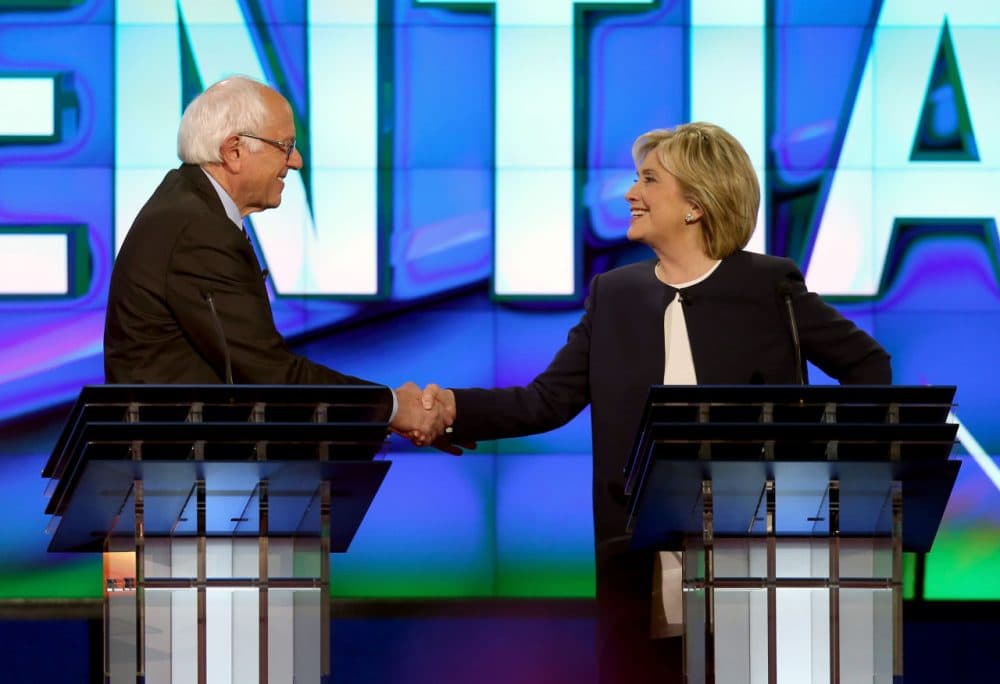Advertisement
How Superdelegates Can And Can't Change The Democratic Primary
Resume
Hillary Clinton may have suffered a big defeat in Tuesday night's New Hampshire primary election. Going by the number of delegates she gained though, she came out in much better shape. Both Clinton and Vermont Sen. Bernie Sanders, who won with a 22-point lead, walked away even, with 15 delegate votes each.
That's left some supporters scratching their heads asking how that is possible. The answer is "superdelegates."
Here & Now's Robin Young speaks with political scientist Julia Azari about how superdelegates are different than delegates and what impact they may have on the Democratic primary.
Interview Highlights: Julia Azari
What are delegates?
“The delegates are the people who represent each state at the national party convention. They’re the one who will cast their votes and formally decide on the party nominee after all the primaries and caucuses have wrapped up. Most are what’s called committed delegates, and they’re instructed by the voters in their respective states.”
What are superdelegates?
“A superdelegate is what we would call an uncommitted delegate so this is a member of the party elite who will go to the convention and cast a vote based on their own judgement.”
Why the superdelegate system was adopted in 1984
“There’s a lot of concern first that the picks aren’t legitimate enough with the party voters and then there’s a concern that the system is just too wild West and the party elites have no control over it and the kind of candidates that are able to do well under this system aren’t able to do well in the general. So the concern is that the system isn’t really doing a good job picking nominees, and so the superdelegates are part of that effort to kind of bring back a little bit of party control.”
On the superdelegates’ support for Hillary Clinton this primary season
“There’s a couple of things that are worth paying attention to here. One of these things is that, when asked, they say they’ll probably support Clinton but they haven’t committed. The other thing to note about them is that they are about 20 percent of the total. So they’re 743 out of about 4,300. So they would really only make a difference if it’s close. They’re not going to overturn a clear victory for Sanders in the convention. No one can see into the future or know for sure, but our norms about how parties work have changed so much since the late 1960s that I think to have party officials overturn or push-back against what the electorate decided, that’s just not going to fly. I think the only chance a superdelegate will make a difference is if there isn’t really an obvious preference coming out of the electorate part of the process.”
On the setup on the Republican side
“Their setup is a little bit different. They’re in a more likely situation to have an outsider pick up delegate support as they go through this primary season, and I don’t know what if anything the national party will be able to do about that.”
Guest
- Julia Azari, professor of political science at Marquette University. She also writes for the blog Mischiefs of Faction on Vox. She tweets @julia_azari.
This segment aired on February 12, 2016.